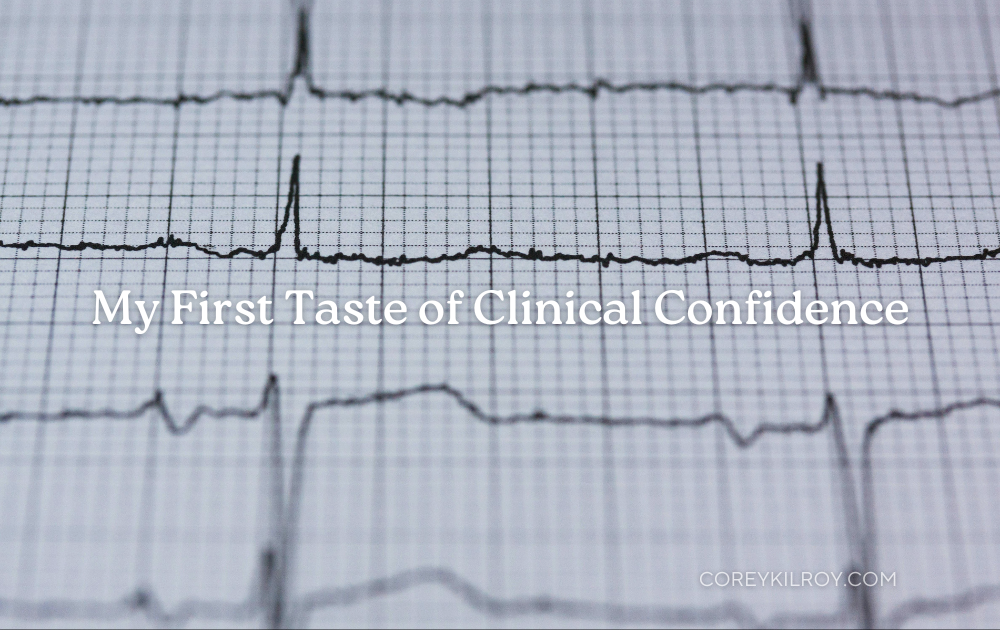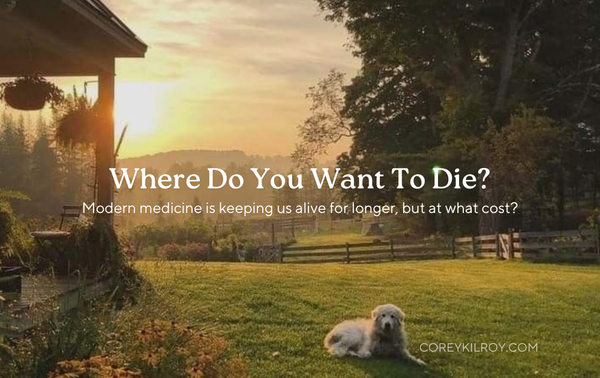The Day a Fake Patient Gave Me Real Confidence.
How one simulated patient and an irregular rhythm silenced weeks of self-doubt in PA school.

I’m currently in my second semester of PA school. Words cannot describe how much I’ve grown in such a small amount of time, as a person and healthcare professional.
However, the last few weeks have felt like a blur, with numerous lecture marathons, back-to-back exams, and an EKG boot camp that left my brain whirling after each and every class.
It’s safe to say that it’s been taking a toll on my mind and body…
Nonetheless, the show must go on, and this week’s lab was no exception as we were scheduled to run a mini-OSCE.
This is just a scaled-down version of a regular OSCE that we do to practice for the “real deal”.
If you are, or know anyone, studying medicine, you know just how nerve-racking these OSCE’s can be.
This mini-OSCE involves one standardized patient, 25 minutes to gather a history, run a focused exam, pick labs and imaging, and land on a diagnosis (then race home to craft the SOAP note before you forget everything).
When our professor asked who wanted to go first, I reluctantly raised my hand and “volunteered as tribute” to get things over with.
Halfway through the encounter, after gathering my HPI (history of present illness) and asking a myriad of follow-up questions, I saw it: an irregularly irregular pulse, fluttering in the chest, fatigue after walking, and a few risk factors hiding in plain sight.
My patient had A-fib.
In simple terms, the upper chambers of their heart were quivering and not pumping blood properly.
I trusted the hunch, ordered the ECG, and watched the squiggly confirmation appear on the 12-lead.
And after feedback from my professor, I successfully diagnosed the patient and clinically interviewed the patient with competence.
I did it. I had “a win” in PA school.
And every win, no matter how big or small, is huge when it comes to surviving something as hard as PA school.
Six months into the program, after many long, tough days, I finally felt that “click” when classroom knowledge transfers into real-world use.
I finally started to feel confident in my knowledge and skills as a PA student and healthcare professional.
After this experience, I realized a few things.
- Small wins fuel big momentum. One correct call doesn’t make me an expert, but it does erase a chunk of imposter syndrome. It’s important to celebrate it, and then get back to work.
- Reps build intuition. I’ve read many ECGs during our 2-week “ECG bootcamp”. Seeing one on a “live” patient proved the mental reps weren’t wasted.
- Maybe Cardiology isn’t so bad. Before starting school, many people told me how difficult and grueling Cardio was going to be. And they weren’t lying. However, it’s one specialty that’s crawled its way to the top of my “prospective specialties” list after school. I’ve kind of fallen in love with it and especially excited to say I’ve “survived” cardio so far in PA school.
Be well + Keep Pluggin.
-C.



